My friend, Tara, discovered that her husband was cheating on her in the worst way possible—the woman he was having an affair with filed a sexual assault charge against him. As we rallied to offer her support and comfort, the question haunting Tara the most was, “Does he regret cheating on me? Does he realize what he’s done, to his own life, to mine, to our family?”
That got me thinking, how and when do cheaters realize they made a mistake? And how does that realization impact their actions going forward? For the sake of all the Taras out there wrestling with similar questions or looking for a hint of cheating regret in their partners, I decided to delve deeper into how cheaters remorse plays out.
7 Factors That Influence Cheating Regret
Table of Contents
If you’ve been cheated on, you’re probably wondering: how do cheaters feel about themselves? Do they regret their actions? Given that cheating is a choice, a conscious decision to betray a partner’s trust, it can be easy to presume that a cheater is perfectly at peace with their actions. However, that’s not always the case. Nor is cheating regret a given. While some cheaters feel deep remorse and shame, others find ways to justify their actions. It all depends on the specifics of the situation. Whether (and to what degree) a cheater regrets their actions often depends on the following factors:
Related Reading: Can A Cheater Change? This Is What Therapists Have To Say
My Mind Was My Own Living Hell, I Cheated And I Regret It
I too was like you. I thought I was living the happily-ever-after. So what if after 4 years of marriage, my wife and I had spent barely a year together? My work in the merchant navy takes me to various corners of the world, as does her job as a documentary film producer.
We were happy to still be able to steal moments, yearn for each other and avoid the mundane everydayness of marriage. We were both thrill seekers, after all, so this arrangement worked just fine. Except it didn’t. I thought we had it under control, we could live like two lovelorn teenagers forever. But I missed the comfort of an adult companion, one I could share my everyday life with. I don’t know when my heart began to look away.
I cheated on my beloved. Not just physically, but emotionally too. What started as a friendly acquaintance turned into a heated affair. When I saw my wife the first time after my transgression, I just wanted to run into her arms, cry and tell her I regret betraying her for another woman. The affair had been short-lived for its own reasons. I’d like to believe my conscience was one of them.
When I saw her waiting for me, the magnitude of my stupidity hit me. But so did my shame and the part of me that said, “Save your marriage and keep your mouth shut.” I knew she wouldn’t tolerate a cheating husband. So I kept quiet, trying to enjoy whatever time we had. But she noticed something was off. And the more I tried, the worse it got.
Keeping this secret was not helping anyone. I had no confidante and I didn’t think I could get any worse emotionally if I told her. My marriage would crumble indirectly because of this, slowly and painfully with no one really understanding why. Was I saving her, then? Trying to be a hypocritical hero, keeping her from knowing her husband had been with another woman?
But she knew something was wrong. And it was too late to redeem my villainy. It was time to stop being a coward and own up. The conversation now seems like a blur. When I finally sat her down, words just flowed out. The dam had burst. She sat quiet, got teary-eyed for a moment, then controlled herself.
She asked no questions then but just walked away and shut her door. It was the best and worst moment of my life. Best because I felt so much lighter having confessed. Worst because I feared my marriage was over.
Was his marriage really over or did they manage to work through the regret and pain of infidelity? Read the full story here.
1. Level of emotional investment in the affair
Cheaters’ remorse is often contingent on the nature of their involvement with their affair partner. So, if your partner cheated just for the thrill, they may feel sick with guilt afterwards. However, if there is a deep emotional attachment to the affair partner, it can drastically subdue feelings of regret.
Dr. Tammy Nelson, sex and relationship therapist, explains, “One-night stands are often regretted immediately, while emotional affairs may take longer to trigger remorse—if at all. If someone falls in love with their affair partner, they may not experience regret in the same way.”
2. Personal morality and guilt response

Do men regret cheating? Do women feel remorse over betraying a partner? More than gender, a person’s value system and moral code determine how they feel about cheating on their partner. For instance, someone who was raised in a family where fidelity was non-negotiable is more likely to struggle with deep guilt than someone who grew up with a “what they don’t know won’t hurt them” mindset.
Dr. Alexandra Solomon, a clinical psychologist, says, “People who cheat and feel intense guilt are often those who give into temptation despite having a strong moral compass. Those who don’t feel remorse may have already justified their actions long before they happened.”
Related Reading: The 7 Types Of Cheaters – And Why They Cheat
3. Whether the affair was discovered and how
Regret can depend on whether the cheater was caught or confessed voluntarily. Some only regret getting caught. As this Reddit user says, “My ex was secretly still seeing his first love when I met him 35 years ago, and he continued to secretly see her for the first 8 years of our marriage. I found out two days after Christmas, by catching him in lies. He now says “He’s mad at himself for hurting me.”
“I disagree, he’s mad at himself because he got caught and now he’s facing the consequences. He knew what he was doing was hurting me, yet he chose to do it, time and time again. He had a choice when we first met, to tell me he was unavailable, but he chose to be deceitful and trap me in a marriage where he told me he loved me and I was the only woman for him. He knew all along.”
“If someone confesses on their own, it’s often a sign of real remorse. If they only admit it after getting caught, their regret may be more about the consequences than the act itself.”
—Dr. Ian Kerner, couples therapist
4. The consequences they face
A cheater’s level of regret often correlates with the fallout. Did they lose their relationship, or did their partner forgive them? If a cheater is immediately dumped and loses their home, family, and friends’ respect, regret is more likely. If their partner forgives them for cheating and takes them back with little consequence, they might not feel much remorse at all.
Sometimes, as in the case of my friend, Tara, the severity of the consequences can make a person more brazen. Dealing with a lawsuit, his job hanging in the balance, losing his family, made Tara’s husband more unabashed about what he’d done. Since he was a man with literally nothing left to lose, he owned up what he did with a “yeah, so what” attitude.
Related Reading: Should You Forgive A Cheater? 8 Factors To Consider
5. Their feelings toward their primary partner
The state of a person’s relationship also determines how they feel about their choice of betraying their partner. For instance, if a person is in a loving relationship and chooses to cheat for thrill or as an antidote to boredom, they may regret their actions far more than someone who is in a toxic or abusive relationship. Renowned relationship therapist Dr. Esther Perel says, “Not all cheating happens in unhappy relationships. However, those who cheat because they feel deeply dissatisfied often regret the deception, but not the act itself.”
Illustrating how being in an unhealthy relationship can dull the remorse of cheating, a Reddit user shares, “I cheated because I was being abused physically and mentally and wasn’t getting the love from the relationship that I wanted so I found it somewhere else. I did try to leave but it never worked. He would physically hold me down and so on. Anyway, again there’s no excuse for it, I shouldn’t have, but that’s not why I’m here to explain that. To answer your question, when I cheated, I didn’t feel any remorse. I didn’t feel bad, I didn’t even want to continue the relationship I was in because he was just so cruel to me.”
6. Their ability to rationalize the affair

A Reddit user says, “When my husband was cheating on me, he told me he subconsciously felt some shame but more of paranoia of being caught, but he buried it and only focused on enjoying the moment. He had no interest in stopping until the affair ran its natural course of either by fading out or getting caught. “If I stopped it, she would run to you, so I enjoyed the relationship until something happened.”
So many people find ways to rationalize the cheating because they’re enjoying the experience too much to want to give it up. Clinical psychologist Dr. Robert Weiss says, ‘Cheaters who rationalize their actions with ‘My partner ignored me’ or ‘It was just sex’ often lack true remorse. They see their actions as justified rather than a betrayal.”
7. Whether cheating is a habit or a one-time thing
Serial cheaters and one-time cheaters often feel regret very differently. Dr. Patrick Carnes, sex addiction expert, explains, “Those who repeatedly cheat often develop emotional calluses—meaning they feel less remorse over time. A one-time cheater is more likely to experience intense guilt and self-loathing.”
A habitual cheater will not only find ways to rationalize their actions but also, over time, learn how to push away or suppress feelings of regret or remorse. On the other hand, a person who is deeply committed to their partner may feel guilt and shame over the “worst mistake of their life” eating away at them.
Related Reading: An Overview Of Stages Of Guilt After Cheating
When Do Cheaters Realize They Made A Mistake? 10 Scenarios
Depending on the nature of your partner’s transgression, the state of your relationship, and their personality, you may now have some sense of whether or not (and to what extent) they regret cheating on you. However, feelings of regret can also depend on the circumstances leading up to and after the infidelity. When do cheaters realize they made a mistake, you ask? In the following scenarios:
An Affair She Regrets
He had come to pick an anniversary gift for his wife. Ironic, isn’t it? It felt like love, maybe it was. The sunrise seemed prettier, flowers smelled sweeter and I could not wait to wake up in the morning to see if there was a message from him or a voice mail. We were exchanging pictures, sometimes ten a day. He made me feel wanted and beautiful. He appreciated everything about me, my designs, my dressing, my lips … I was hitting the gym with the precision of a clockwork mouse, getting fitter, toned and I loved the person who looked back at me in the mirror. I was in love, not just with him, but myself and life. I was incredibly happy. You know they say that one of the things one should be careful about is flashing their joy when in a relationship. My stupid grin and I-am-in-heaven stares gave me away.
Anyway, you can’t really hide an affair for long. When my husband found out and confronted me, I confessed. Told him that I was in love and that I would be moving out with my girl the next day. My lover and I had discussed such a situation and had charted our course of action and the day had come. My husband, too angry then, did not stop me from leaving.
I filed for divorce. My lover’s wife, however, refused to do the same, but he moved out and we began living together. I was sure that in time she would come around too. We started our new dream life, and in the beginning, it was magical. We could talk for hours without worrying about our backstories, we cooked for each other, every dinner was like a date, and we were magically happy. He visited his kids whenever he could and my girl spent her weekends with her dad. Four months passed in this blissful state and then, it began.
His remorse over not being able to spend enough time with his kids, overseeing his grief-stricken wife (she showed no signs of moving on), or the abandonment he felt as many of his friends and family severed connection with him. When the novelty of ‘how beautiful it would be to wake up in each other’s arms’ wore off, when the sex turned routine, when we began discussing what/who would be cooking dinner instead of which cheese to order with which wine in bed, our ‘dream life’ began looking like very much the quotidian marriage we had both left behind. Passion, the exciting secrecy, the rebellion of forbidden pleasures, all the riders of our love were dying a fast death.
He moved back to his family before the first year was up. My husband did not have a steady relationship then but had moved on. We did try to give living together another shot, but it did not work out. To be honest, I do feel like I made a mistake.
To know more about how cheating regret can crumble relationships, read the full story here.
1. Facing the emotional fallout
Do cheaters realize what they lost by betraying their partner’s trust? As is clear from the account of an affair shared above, when the pleasure and excitement of an affair begin to fade, cheaters are confronted with the emotional fallout of their choices. This can stir up feelings of profound regret. Clinical psychologist Dr. Janis Abrahms Spring says, “An unfaithful partner may feel deep remorse when they see the genuine hurt and betrayal in their partner’s eyes.”
Related Reading: 17 Psychological Facts About Cheating – Busting The Myths
2. Experiencing the loss of trust
Trust is the foundation on which any lasting relationship is built. In the aftermath of an affair, when a cheater realizes that their partner struggles to trust them even on the smallest of things, even if they have chosen to forgive them and give the relationship another chance, they’re likely to struggle with the unsettling thought, “I cheated and I regret it.”
Dr. Shirley Glass, author of Not Just Friends, says, “The loss of trust can be a wake-up call for the unfaithful partner, highlighting the depth of their betrayal.” This is also because they can see how hard it is to rebuild trust in a relationship, and may deeply regret bringing their relationship to that point.
3. Encountering social repercussions
Infidelity can lead to judgment and ostracism from friends and family. When your friends no longer want to hang out with you, when your children look at you with disdain, when your coworkers are gossiping about you, when you see the hurt in your parents’ eyes, it’s hard to not be affected by the consequences of your actions.

Dr. Frank Pittman, a psychiatrist, explains, “The disapproval from one’s social circle can amplify feelings of guilt and remorse in the unfaithful partner.” If you’re wondering, “How do cheaters feel about themselves?”, know that dealing with social stigma is never easy. When a person sees how one wrong choice has cost them every important relationship in their life, it is bound to bring up feelings of regret and shame.
Related Reading: I Can’t Forget My Husband’s Affair And I Feel Tormented
4. Realizing the affair wasn’t worth it
Over time, the allure of the affair may diminish, leading the cheater to question if it was worth jeopardizing their primary relationship. This can happen when the novelty and excitement of a clandestine relationship wears off and the person begins to see that an affair is also just another relationship with the same ups and downs.
Or when the affair is discovered—for example, if the affair partner contacts their primary partner/spouse and exposes their transgressions, it can leave a person regretting their actions. Relationship therapist Dr. Esther Perel says, “Many individuals come to see that the affair was a misguided attempt to fulfill unmet needs, leading to profound regret.”
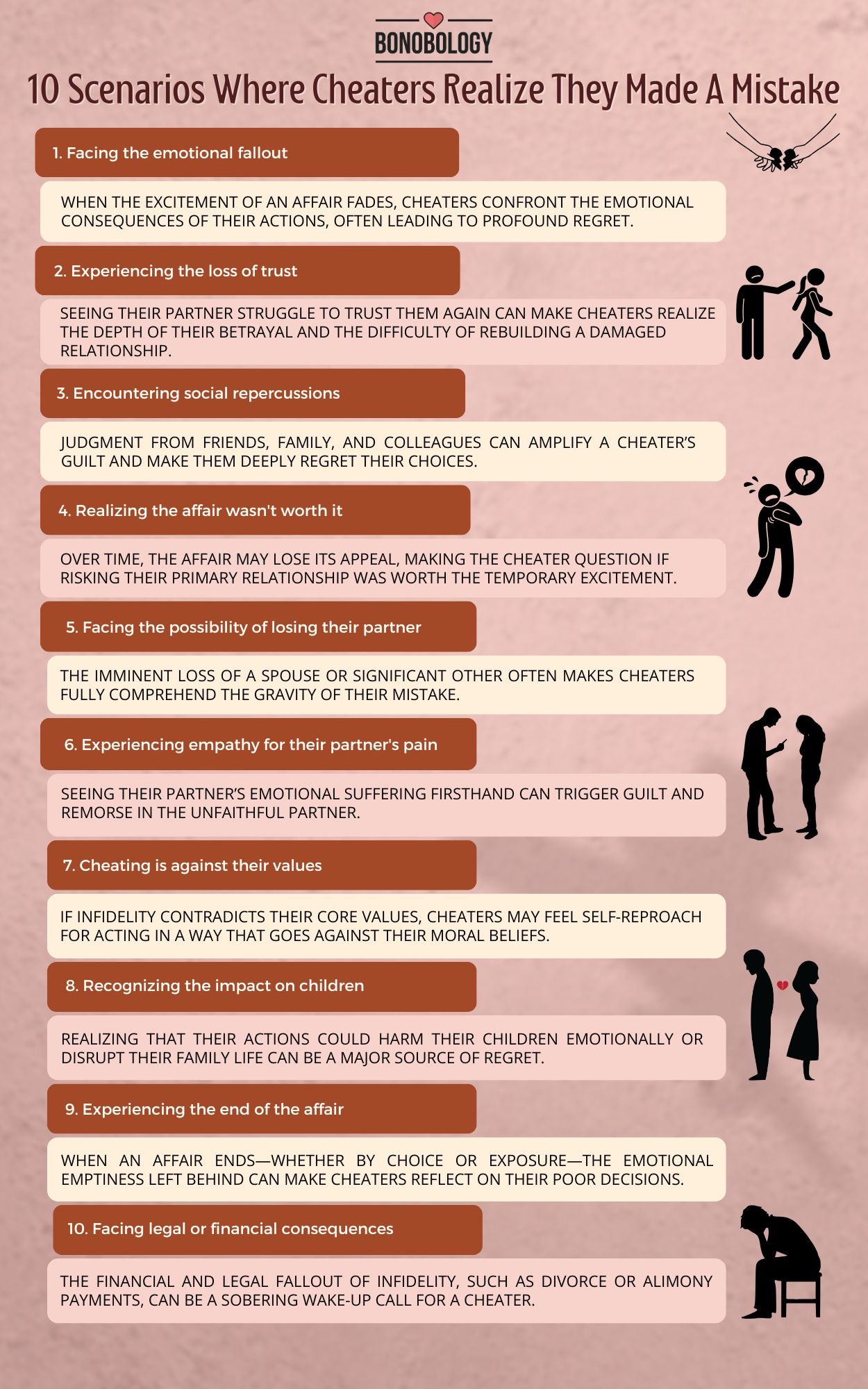
5. Facing the possibility of losing their partner
When do cheaters realize they made a mistake? Nothing makes this realization hit home faster than the threat of losing their primary partner. When a cheater’s partner decides to move out, break up, or consider divorce, the enormity of their mistake dawns on them. Of course, by then, it may be too late to make amends, but this potential loss hanging over their head can be a powerful motivator not just for remorse but also for change.
6. Experiencing empathy for their partner’s pain
“I cheated and I regret it.” This sentiment begins to ring true when a person sees how deeply they’ve hurt their partner. Seeing the effects of cheating on the relationship, watching a partner struggle with betrayal trauma and trying to pick up the pieces of a life shattered for a fault of their own can evoke empathy and make a cheater regret the choice they’ve made.
“Empathy can bridge the gap between the unfaithful partner and the betrayed, fostering genuine remorse.”
—Dr. Sue Johnson, clinical psychologist
7. Cheating is against their values
Dr. Alexandra Solomon, a clinical psychologist, says, “Aligning actions with personal values is crucial; when there’s a mismatch, it often leads to self-reproach.” If a cheater has a strong value system they’ve lived by their whole life but end up doing something uncharacteristic in a moment of weakness, it can feel like they’ve betrayed everything they ever stood for, resulting in deep regret.
Shincy, a reader from Cape Town, shares, “My partner and I had been going through a rough patch. After a particularly nasty fight, I stormed out of the house and went to my best friend’s place to crash for the night. One thing led to another, and I ended up hooking up with my ex. The morning after was the worst day of my life. I went back and confessed everything to my partner and begged for forgiveness. It took him a while to get past what I’ve done but this past year and its challenges have brought us closer than ever.”

8. Recognizing the impact on children
When do cheaters realize what they lost? The most poignant aspect of dealing with the aftermath of cheating for the cheater is understanding the harm their actions have/could have caused their children. When a cheater begins to see that their family may fall apart because of what they’ve done or see their children go through pain and confusion caused by the turmoil between their parents, it inevitably stirs up feelings of self-loathing and deep remorse. That’s when cheaters suffer the most. Psychologist Dr. Joshua Coleman concurs, and says, “The realization that their behavior could disrupt their children’s lives can be a significant source of regret.”
9. Experiencing the end of the affair
The end of an affair can also trigger cheating regret. If the affair partner decides to end the affair, a cheater may feel a sense of loss and question their decisions. If the affair gets exposed and therefore reaches its inevitable end, the ripple effect of consequences can leave a person wondering if the fleeting thrill and excitement was worth the price. Likewise, if a person chooses to end their affair, it could be because they’re already struggling with guilt.
In all of these scenarios, a person is likely to experience pangs of remorse over their actions. Psychiatrist Dr. Scott Haltzman says, “The end of an affair can leave individuals grappling with feelings of emptiness and regret.” If the affair ends before it is discovered, these feelings can be a great motivator for a person to make up for their mistakes (with or without a confession) and make an earned effort to nurture their relationship with their primary partner.
Related Reading: 15 Signs Your Affair Is Over (And For Good)
10. Facing legal or financial consequences
When do men regret cheating the most? Certainly, when infidelity leads to legal battles and financial strain caused by divorce proceedings and alimony/maintenance pay out, or the person sees how abysmal life after divorce looks. Even if a person is a serial cheater, these tangible repercussions can make them see the error of their ways and make them regret their actions. As marriage therapist Dr. Paul Hokemeyer, a marriage therapist says, “The practical consequences of infidelity can be a sobering reminder of the costs of betrayal.”
Key Pointers
- Emotional investment, personal values, guilt response, and how the affair was discovered impact whether a cheater feels remorse
- Cheaters may regret their actions when facing loss of trust, social stigma, and strained relationships
- The excitement fades, reality sets in, and they see how their actions jeopardized their primary relationship
- When their partner leaves, children are affected, or they face major consequences, regret often intensifies
Final Thoughts
Understanding these scenarios can provide insight into the complex emotions and realizations that cheaters may experience. However, it’s essential to prioritize your healing and well-being. Seeking support from trusted friends, family, or professional counselors can help you navigate the aftermath of infidelity.
The 3 Types Of Men Who Have Affairs And How To Recognize Them
Your contribution does not constitute a charitable donation. It will allow Bonobology to continue bringing you new and up-to-date information in our pursuit of helping anyone in the world to learn how to do anything.

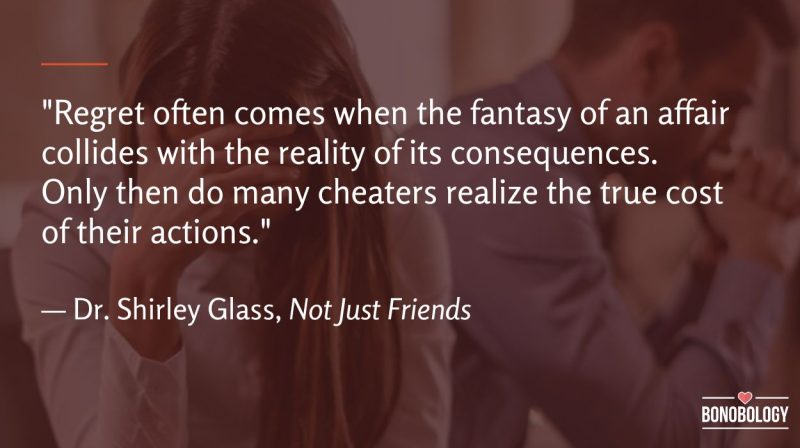




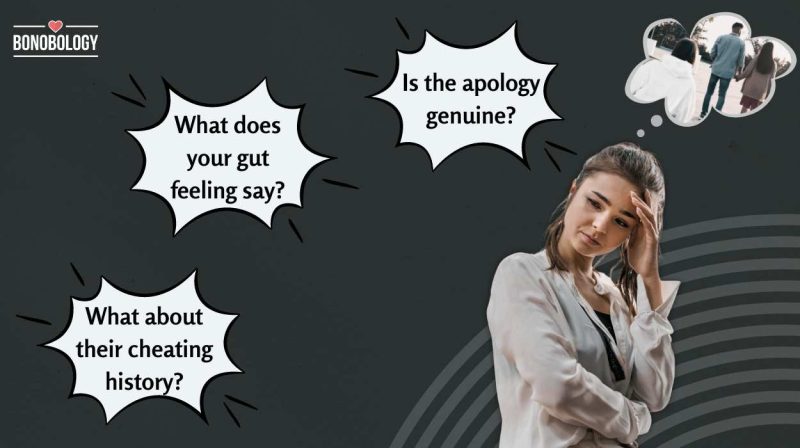




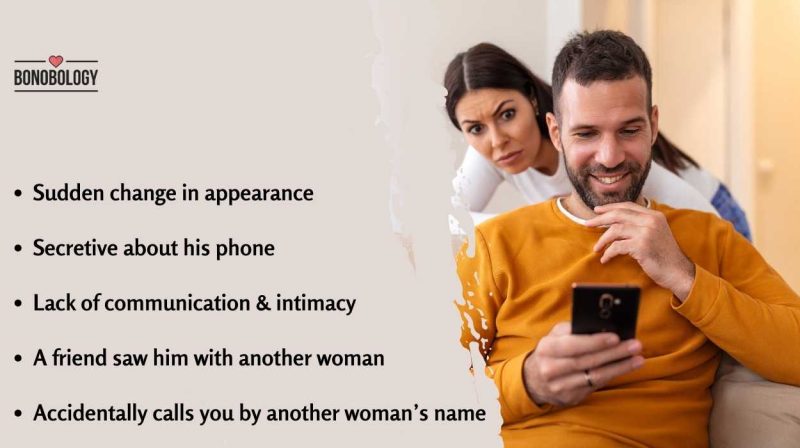
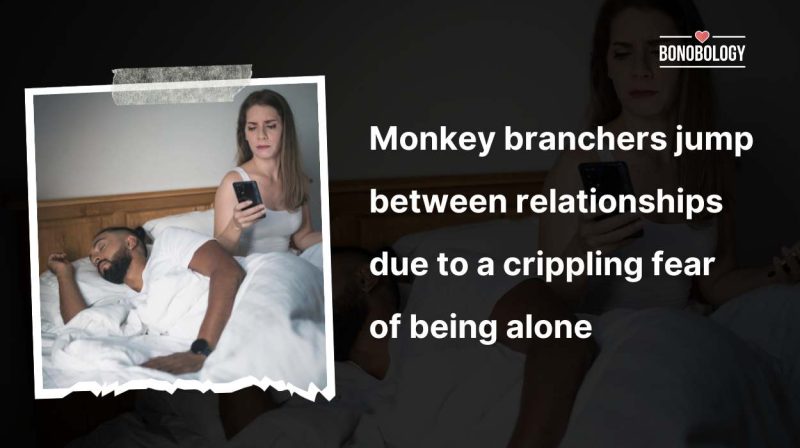

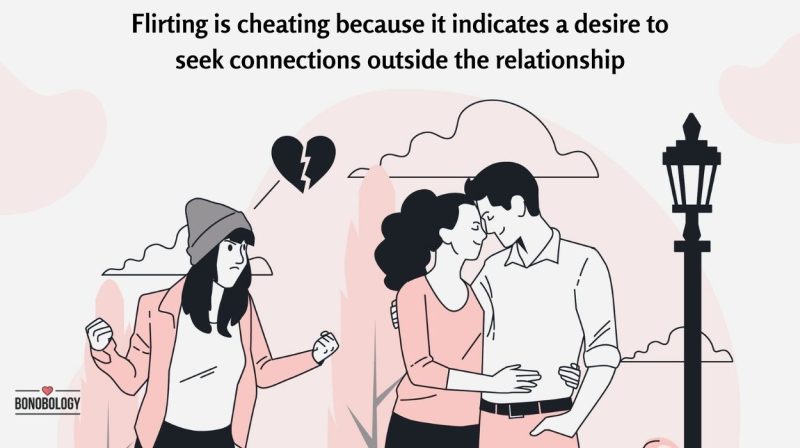




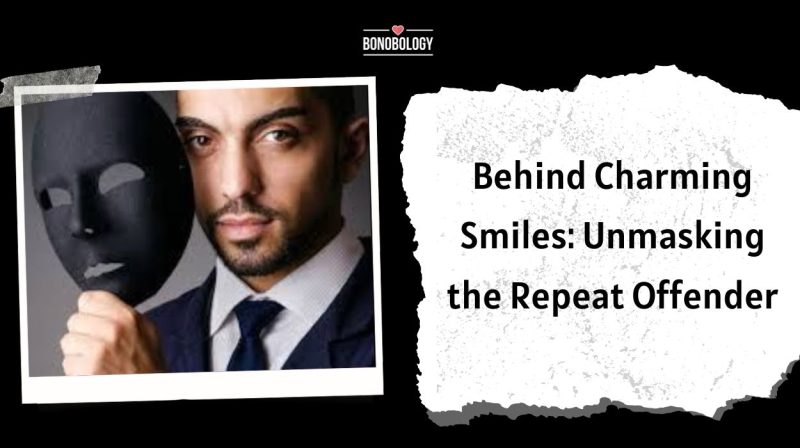

Featured
5 Best Cheating Spouse Tracker Apps (Android & iPhone)
How To Catch A Cheater That Deletes Everything: 12 Hacks
33 Signs Of Micro-Cheating — Is Your Partner Guilty Of These?
7 Therapist-Approved Things To Do If Your Boyfriend Is Cheating On You
11 Heartbreaking Signs Your Husband Misses His Affair Partner
Should You Forgive A Cheater? 8 Factors To Consider
How Can You Tell If Your Fiancé Is Cheating? 15 Signs To Look Out For
Is Marriage Never The Same After Infidelity?
13 Uncommon Signs of Cheating People Wish They Hadn’t Ignored
15 Cell Phone Cheating Signs That Confirm Infidelity
Gut Feeling He’s Cheating, No Proof? 31 Signs Your Instincts Are On Point
Monkey Branching: Meaning, Signs, And Ways To Deal
Painful Message To A Cheating Boyfriend: 50 Brilliant Ideas
Is Flirting Cheating? 9 Reasons It Is And 7 Ways It Can Harm Your Relationship
What To Do If You Suspect Your Husband Is Cheating But Have No Proof
Understanding Post-Infidelity Stress Disorder – Signs and Recovery Tips
15 Signs Your Husband Is Cheating On You With A Coworker
The 7 Types of Affairs and How They Affect Relationships
15 Warning Traits Of A Serial Cheater—Run If You Spot These
When Is Texting Cheating? 11 Different Scenarios And How To Deal